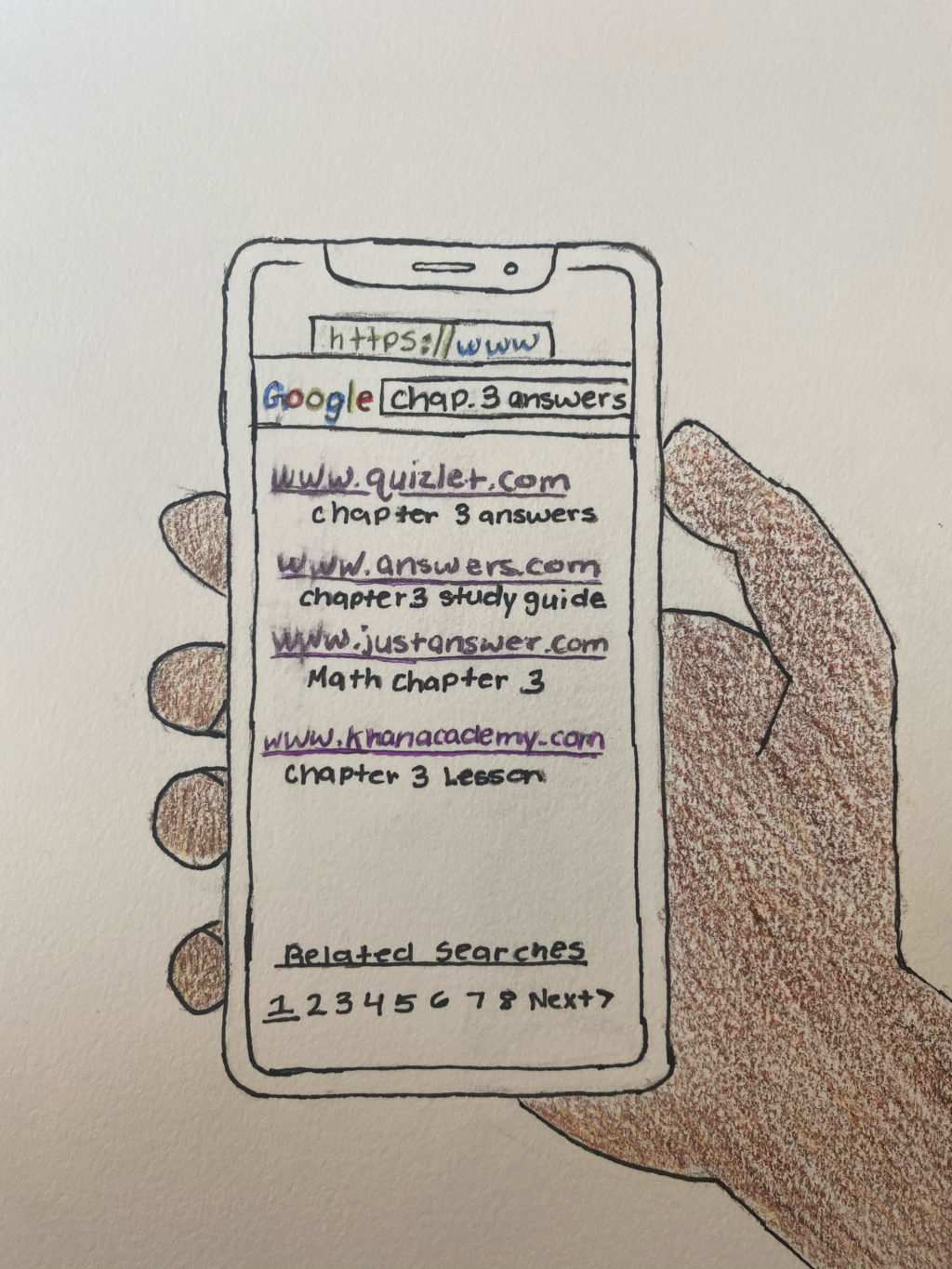According to PBS, around 84% of teenagers in America own a cell phone. This number is steadily increasing each year. Due to this rise, many schools are facing the effects of mobile devices being a distraction to their students. Perkiomen Valley School District has lenient rules on the use of cell phones in the classroom, leaving the decision up to each teacher for whether they permit the use.
The Perkiomen Valley Handbook states,“With the use of electronic devices comes responsibility and expectations for students. Inappropriate use of communication features on electronic devices during instructional time or in the school environment is prohibited. Each teacher has the right to permit the use of mobile/electronic devices during instructional time.”
Furthermore, PV allows the use of electronic devices within the cafeterieria, hallways, study hall, and (teacher approved) classrooms. These flexible rules make it more common for students to be caught using their phones in unapproved places and can cause more teachers to punish them as a result. With each teacher having their own rules as well, this can be confusing to students.
Researchers have linked distraction caused by cell phones to a decrease in performance level. Harvard conducted a study where 80% of students agreed that cell phones decrease their ability to pay attention. Another study by McAfee, found that 1 in 3 students, who had their cell phones near/on them, used the device to cheat on exams.
Many teachers at Perkiomen Valley believe that cell phones should not be permitted in classrooms and that they are hurting students’ education.
“I do believe that they are harmful. I have had many issues through the years. No one needs to be that connected constantly to their phone. Before cell phones in class, kids would just talk to each other more. Now communication is done mostly on their phones.” Madame Fleischer, a teacher at PV, said.
On the other hand, some teachers believe that cell phones are a useful resource in the classroom. Mr. Lyons is one of many teachers that permit cell phones in his class. He believes that cell phones should be permitted as long as students learn to be considerate and respectful.
“It comes down to discipline and maturity. Some students have enough of those two qualities to lay off the phone during instruction. Some don’t, even though they have been told countless times that it’s rude and counterproductive to be screwing around on phone media. They either get it or they are too immature to get it,” Lyons said.
Every student is going to behave differently with their cell phone and there is truly no way to ensure that everyone stays on task. The best solution is to have students work on their school issued laptops where only educational tools can be accessed. By prohibiting cell phones, this will ensure that there is less distraction and cheating in the classroom.
